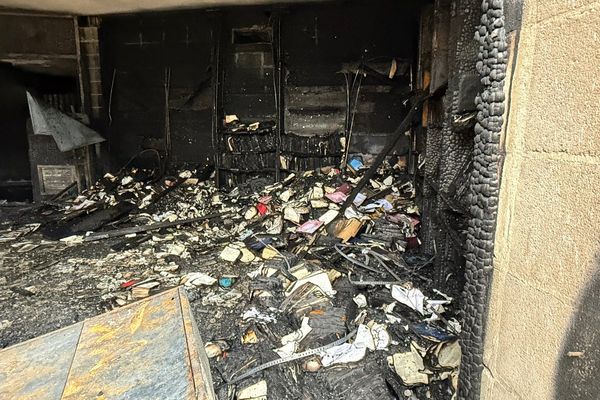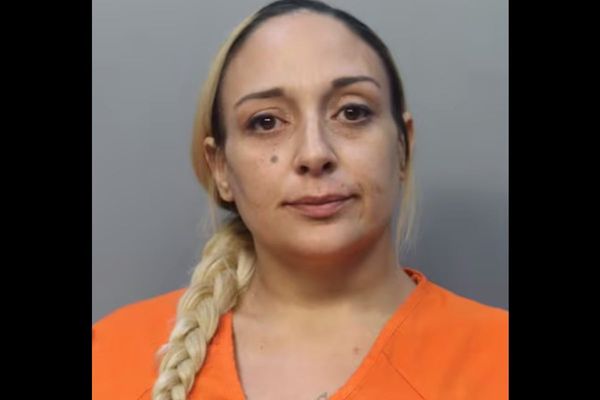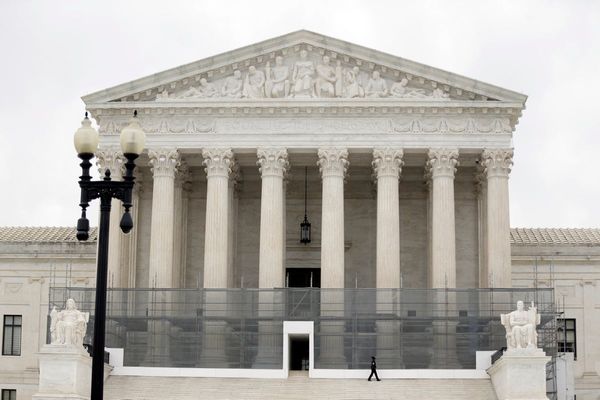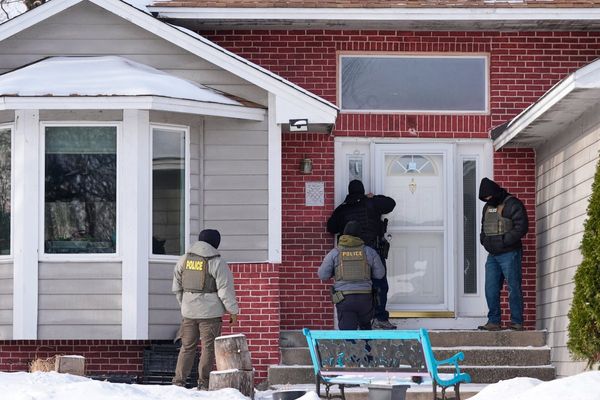
For the past few days, Ollie Williams has been intermittently checking the doorbell camera from his phone to see if his house is still there. Sometimes, he checks the camera that's normally used to watch the dog when he and his partner aren't home.
"It's a rather traumatizing way to check back in," he admits. "I looked at the camera of our nice living room there — you know, there's the TV, there's the sofa, there's the dog's bed. And I cried for about five minutes."
Williams isn't sure if he'll ever see it in person again.
He's currently about 400 miles from his home in Yellowknife, the capital of the Northwest Territories in Canada. He evacuated along with nearly all of the city's 20,000 residents after a mandatory evacuation order as wildfires rage dangerously nearby.
There are more than 200 fires burning in the Northwest Territories. Nearly 400 are burning in the nearby province of British Columbia. Canada is grappling with its worst wildfire season on record, leaving tens of thousands of people displaced and blanketing parts of that country and the U.S. with thick, choking smoke. All in all, there have been at least 5,790 fires in Canada this year, according to the Canadian Interagency Forest Fire Centre.
In Yellowknife, a mandatory evacuation order went into effect for the entire city Wednesday, creating a chaotic scene as long lines of cars queued for miles to flee along the only road out of town.
"It's one lane in each direction for 600 kilometers. And it's virtually a dirt road in places," Williams says.
Williams is the editor of Cabin Radio, an independent internet radio station and online newsroom based in Yellowknife. He and his small team have been tirelessly pushing out text alerts to residents throughout the evacuation — even as they themselves evacuated — trying to get information to people in an area where cell service and resources are spotty. He evacuated with a Starlink satellite dish set up in the back of his truck, propped up between bags of dog food, using the signal to keep updating the community while his partner drove.
"Personally, I'm fully wrecked at this point. I've spent most of my week delivering what can only be described as survival updates to 20,000 friends, and I'm mostly doing my job because it spares me from having to think about anything else," Williams says.
It's not just people who are being displaced by the flames — wildlife is also being forced to relocate. On Friday, the city of Yellowknife tweeted that a bear was spotted on the streets.
Yellowknife is one of eight communities in the Northwestern Territories evacuated in the past week, mayor Rebecca Alty told NPR's All Things Considered, calling it "unprecedented." She said that this was Yellowknife's first evacuation.
"The last two fires that were kind of big in our region were in '98 and 2014, but nothing that threatened Yellowknife so much that we even had to consider an evacuation, let alone actually issue an evacuation," she said. "It's been a tough, tough couple days and, I'd say, a tough month. That's when the fire first started."
South of Yellowknife, closer to the border with the United States, a surreal wall of flames hugs the picturesque Okanagan Lake in West Kelowna, British Columbia. At night, the hillsides are alight with the blaze, a stark backdrop to the city of a more than 30,000, as firefighters from all across the province battle to hold the fire at bay.
"It's tough to characterize. It sounds like a rushing river. And day turns to night," West Kelowna Fire Chief Jason Brolund told the CBC, after a particularly long night fighting the flames. "The funny thing was, last night — and I say funny with the utmost respect — but the funny thing was that night turned to day and the orange glow was like nothing that I've ever experienced."
Speaking at a press conference Friday morning, Brolund looked weary, saying that several structures had been lost.
"We knew it was going to be bad. But it was exponentially worse than we had expected," he said. "Somebody described it to me last night in the heat of the battle as it was like a hundred years of fire fighting all at once in one night. And I really think that it was true. We fought 100 years worth of fires."
A potential new normal
It's part of a natural cycle for Canada's boreal forests to burn, and at a certain level it's beneficial for the ecosystem.
"Some people are like, 'Well, this is climate change. This is terrible. We've never seen this before.' That's wrong. We've seen this plenty of times. But it is [also] climate change, and it is much worse than we've seen before," Daniel Perrakis, a fire research scientist with the Canadian Forest Service in British Columbia, told NPR.
Climate change makes large, destructive wildfires more likely because of hotter temperatures and drier vegetation. Higher average temperatures are increasing the length of the fire season, the amount of land burned, and the number of places where fires can occur. In recent years, fires have expanded in the Arctic and even in some rainforests.
For Ollie Williams, waiting to see if his house — and his community in Yellowknife — is OK, he says he's worried that fire seasons like this might just be the new normal: "I think, the scariest thing is that this year is an outlier, but it might not be an outlier in future. It might just be a regular summer. And then what do we do?"
But he also says it's hard to think about the future when there is so much to worry about from day to day.
And then he gets a message from someone fighting the fires back in Yellowknife, and he hangs up to update the community, now scattered, waiting to go back home.







